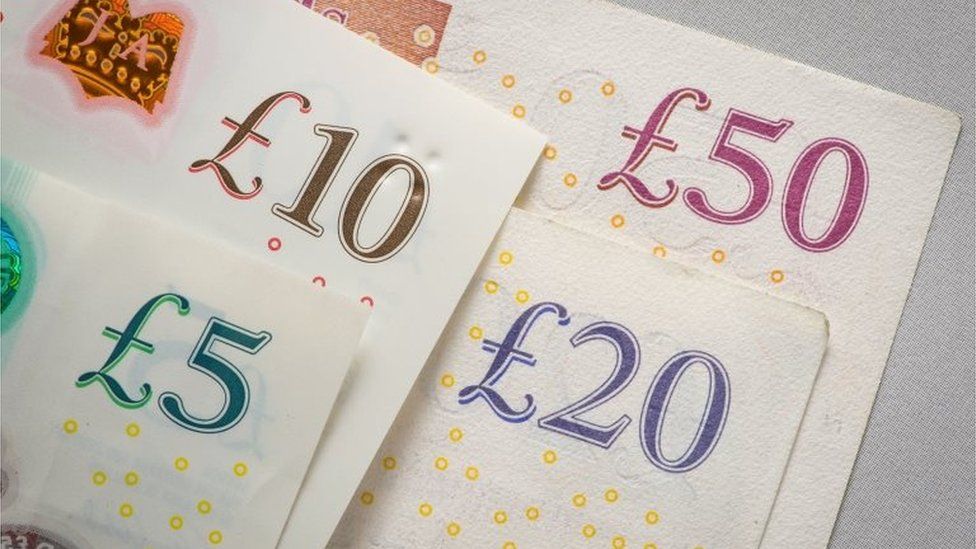General election 2019: Greens offer basic income by 2025
- Published
- comments

The Green Party has pledged to introduce a universal basic income by 2025, which would see every adult receiving a minimum of £89 per week.
Additional payments would go to those facing barriers to work, including disabled people and single parents.
Speaking to the BBC, the party's co-leader Sian Berry said the proposal would cost an additional £76bn which would be funded through taxation.
She said the policy would create "more jobs than ever before".
Under the Green Party's plans, the income would replace universal credit - the benefit for working-age people which covers six benefits including housing benefit and child tax credits.
All benefits except housing benefit and carer's allowance would be incorporated into the new payments, which would be phased in over five years.
The party argues that under its plan someone working full time on the the minimum wage would see their income rise by 32%.
Ms Berry said: "Only the Green Party has the policies and ambition to eliminate the cruelty of the benefits system and tackle poverty head-on.
"Financial security is the key to a good society... people receiving a universal income will have more choices, and more people will be able to cut working hours to retrain, start new green businesses, take part in community action or simply improve their wellbeing."
A pilot scheme in Finland is giving 2,000 unemployed people an income, instead of benefits
The idea of a universal basic income has already been trialled in other countries, including western Kenya, the Netherlands and Italy.
Researchers looking at a pilot scheme in Finland said that while employment levels did not improve, participants said they felt happier and less stressed.
And Labour's John McDonnell has previously said Labour could include a plan for a universal basic income in its manifesto.
In May, the shadow chancellor welcomed a report into universal basic incomes as "an important contribution to the debate around inequality, austerity, poverty and how we establish a fair and just economic system".
"Whatever mechanism we use, whether 'basic income' or another, we have to lead in developing a radical mechanism aimed at eradicating poverty, but also means testing."
Opponents of a basic income say cuts would have to be made elsewhere. The Department for Work and Pensions has previously said the scheme would "not work for those who need more support".
- Published3 August 2018
- Published7 May 2019
- Published8 February 2019
- Published9 May 2019